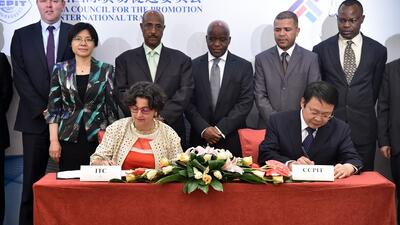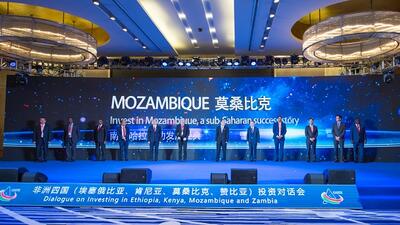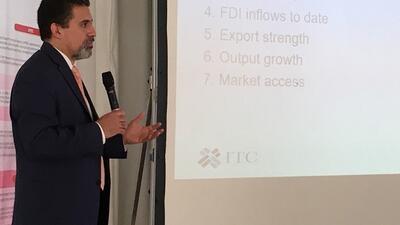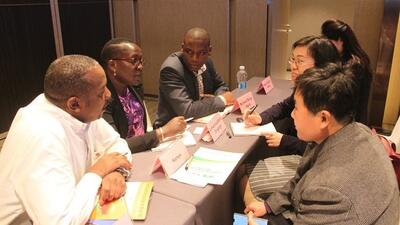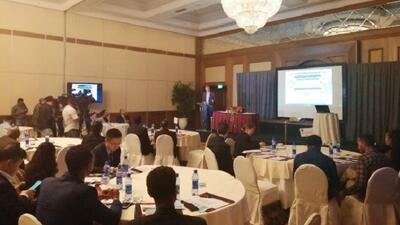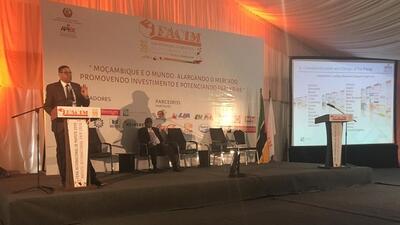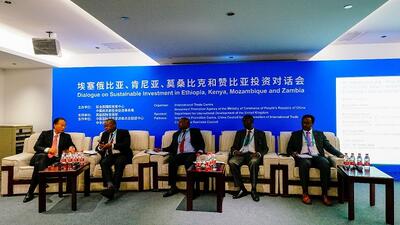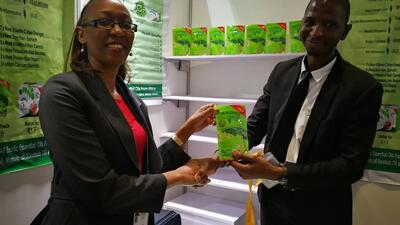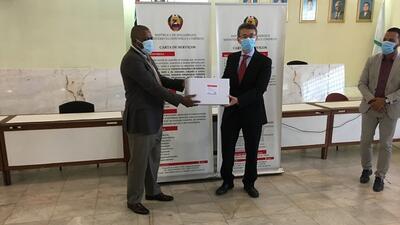
Bringing Investment Promotion Agencies into action
Leveraging virtual learning to help promote sustainable investment practices.
"Sustainable development is one of the seven pillars of Zambia's Vision 2030. Therefore, the sustainability workshops are important to the Zambia Development Agency (ZDA) staff for building their capacity. This will help them to advocate for sustainability business practices to potential and existing investors through investment promotion and after care services," said Ms. Tazizwa Mvula, from ZDA.
With the aim to disseminate information on sustainable investment practices, the International Trade Centre launched a series of virtual workshops for the investment promotion agencies (IPAs) of Ethiopia, Kenya, Mozambique and Zambia.
The workshops were designed for participants working with investment promotion, facilitation and after care to help them incorporate sustainability-related factors into their advisory services.
Foreign investment can unlock opportunities to increase exports to regional and global markets, and better serve the local market, while contributing to the country's development agenda. To do so, investors need to implement more inclusive and sustainable social, environmental and labour practices aligned with the United Nations Sustainable Development Goals.
Throughout the process to set up their business, investors are expected to comply with labour and environmental requirements established by the country and adopt additional sustainability measures to mitigate potential risks. Investment promotion agencies (IPAs), play a key role in disseminating information related to procedures investors need to undertake to obtain their investment certificate and start running their business, including environmental and labour requirements.
Over 40 representatives from the Ethiopian Investment Commission (EIC), the Kenya Investment Authority (KenInvest), the Agency for Promotion of Investment and Export of Mozambique (APIEX) and the Zambia Development Agency (ZDA) participated in these workshops held recently. Country-specific workshops were also organized for KenInvest, APIEX and ZDA. A final workshop with EIC participants will take place in later this month.
The workshops combined a blended approach of presentations, in-class case studies, quizzes, and preparatory readings. The Costa Rican Investment Promotion Agency (CINDE), a leading IPA in the realm of sustainable investment, participated to share insights on their work to integrate sustainability in their portfolio of services.
"The virtual workshops were an eye opener to the new ways of sharing information and best practices. These workshops have partly solved budgetary constraints some of the IPAs have struggled with in the past and present, when it comes to capacity building of personnel and require travel abroad. Going forward, this should be enhanced and made available to more investment facilitators" said Mr. Robert Matarei, Manager of the Eldoret Regional Office at KenInvest, after completing the series of workshops.
ITC's Trade for Sustainable Development (T4SD) designed and delivered the workshops as part of its collaboration with ITC the Partnership for Investment and Growth in Africa (PIGA) project.
About PIGA:
The Partnership for Investment and Growth in Africa (PIGA) is part of Manufacturing Africa (MA), a flagship programme of the United Kingdom of Great Britain and Northern Ireland's Department for International Development (DFID) facilitating foreign direct investment with high development impact into selected African countries.
Under MA, PIGA aims to contribute to job creation and sustainable growth in Ethiopia, Kenya, Mozambique and Zambia by supporting these countries to attract foreign direct investment, specifically Chinese investment, in the agro-processing and light manufacturing sectors. PIGA is also designed to enhance the capacity of these countries for effective investment promotion.
PIGA is implemented by the International Trade Centre (ITC) in cooperation with the China Council for the Promotion of International Trade (CCPIT) and the China-Africa Development Fund (CADFund).




